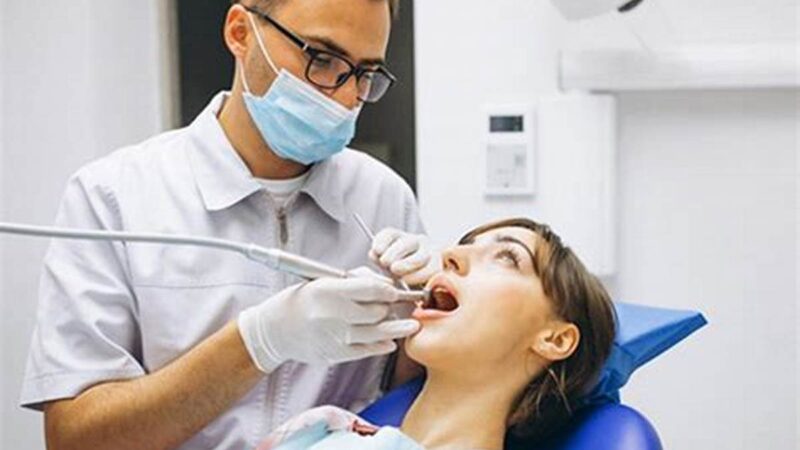Dental Extraction in Surat: Everything You Need to Know

Dental extraction, also known as tooth removal, is a common dental procedure that involves the complete removal of a tooth from its socket in the bone. While this may sound intimidating, dental extractions are generally safe and can provide significant relief for individuals dealing with oral health issues. If you’re in Surat and need to undergo a dental extraction, here’s everything you should know about the process, why it’s needed, and how to prepare.
Why is Dental Extraction Needed?
A dental extraction might be required for various reasons, including:
- Severe Tooth Decay: When a tooth is severely decayed and cannot be restored with a filling, root canal, or crown, extraction becomes necessary to prevent infection and further damage to surrounding teeth.
- Gum Disease: In advanced stages of gum disease (periodontitis), the supporting bone and tissues around the tooth may be damaged, making extraction the best option to preserve the health of the surrounding teeth.
- Crowding: Sometimes, teeth need to be extracted to create space for braces or other orthodontic treatments. This is often the case for patients with crowded or misaligned teeth.
- Infections and Abscesses: If an infection or abscess develops and cannot be treated with antibiotics or root canal therapy, extracting the tooth may be necessary to stop the spread of infection.
- Impacted Wisdom Teeth: Wisdom teeth often become impacted due to lack of space or alignment issues. They may be extracted to prevent pain, swelling, or potential future problems.
- Trauma or Injury: If a tooth is damaged beyond repair due to an accident or injury, it may need to be extracted.
Types of Dental Extractions
There are two primary types of dental extractions:
- Simple Extraction: This type of extraction is performed on a tooth that is visible in the mouth and can be easily removed using forceps. This is usually done under local anesthesia to numb the area and minimize discomfort.
- Surgical Extraction: This is a more complex procedure, often used for teeth that are broken off at the gum line or are impacted (like wisdom teeth). Surgical extraction may require an incision in the gum and, in some cases, the removal of bone. It is typically performed under local anesthesia with sedation or general anesthesia, depending on the complexity of the extraction.
The Dental Extraction Procedure
Here’s a step-by-step overview of what you can expect during a dental extraction:
- Consultation: Before the procedure, your dentist will examine your tooth, take X-rays, and discuss your medical history to ensure you’re a good candidate for the extraction.
- Numbing the Area: To minimize pain, the dentist will administer a local anesthetic to numb the area around the tooth. If you are anxious, sedation options can be discussed to keep you relaxed during the procedure.
- Extraction: Depending on the complexity of the case, the dentist will either remove the tooth using forceps (for simple extractions) or perform a small surgical procedure to remove the tooth (for surgical extractions).
- Post-Procedure Care: Once the tooth is removed, the dentist will provide aftercare instructions, which may include bite pressure on a gauze pad to help stop bleeding, and recommendations for pain relief and care for the extraction site.
Recovery After a Dental Extraction
While dental extractions are generally straightforward, proper care afterward is essential for healing. Here’s what you can expect during recovery:
- Bleeding: Some bleeding is normal right after the extraction, and you may need to bite on a gauze pad to help control it. Bleeding should taper off after a few hours.
- Pain Management: Mild discomfort or swelling is common in the first few days. Over-the-counter pain relievers, such as ibuprofen or acetaminophen, can help manage pain. Your dentist may also prescribe stronger pain medication if needed.
- Swelling and Bruising: Some swelling and bruising around the extraction site can occur. Applying an ice pack to the area during the first 24 hours can help reduce swelling.
- Dietary Restrictions: Stick to soft foods for the first few days and avoid hot, spicy, or hard foods that can irritate the extraction site. Be sure to drink plenty of fluids, but avoid using straws as the suction can dislodge the blood clot forming at the extraction site.
- Oral Hygiene: You should continue to brush and floss your teeth, but avoid the extraction site to prevent irritation. After the first 24 hours, gently rinse your mouth with warm salt water to keep the area clean.
- Follow-Up Appointment: A follow-up visit may be scheduled to ensure the site is healing properly and that no complications have occurred.
When to Seek Immediate Care
While most dental extractions heal well, there are a few signs to watch for that may require immediate attention:
- Excessive bleeding that doesn’t stop after a few hours.
- Severe pain that doesn’t improve with medication.
- Signs of infection such as fever, pus, or increasing redness and swelling around the extraction site.
- Dry socket, a painful condition where the blood clot fails to form or is dislodged.
Choosing a Dentist for Your Extraction in Surat
If you’re in Surat and considering a dental extraction, it’s important to find a dentist you can trust. Look for a skilled dental professional who has experience performing extractions and uses modern techniques to ensure a smooth procedure and recovery. Many dental clinics in Surat offer consultations to help you understand the procedure and address any concerns you may have.
Conclusion
Dental extractions are common procedures that can improve your oral health and prevent further complications. Whether it’s due to tooth decay, crowding, or other reasons, knowing what to expect can help ease any anxieties surrounding the process. With proper care, you can recover quickly and resume normal activities with a healthier smile.
If you’re considering a dental extraction in Surat, consult with a trusted local dentist who can guide you through the process with expertise and care.


